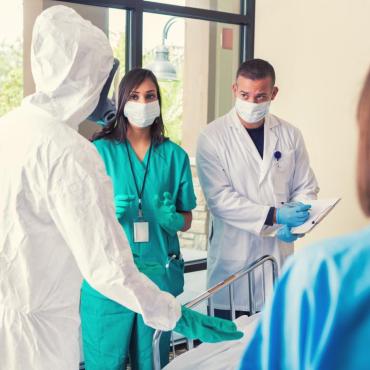- Managing your Practice
-
- Your Benefits
-

Introducing the ultimate Club MD experience
From work to play, and everything in between, we provide you with access to hundreds of deals from recognizable, best-in-class brands, elevating every facet of your life – from practice supports to entertainment, restaurants, electronics, travel, health and wellness, and more. Your Club MD membership ensures that these deals are exclusive to you, eliminating the need to search or negotiate.
Welcome to the ultimate Club MD experience. Your membership, your choices, your journey.
-
- Advocacy & Policy
-
- Collaboration
- News & Events
-

Stay Informed
Stay up to date with important information that impacts the profession and your practice. Doctors of BC provides a range of newsletters that target areas of interest to you.
Subscribe to the President's Letter
Subscribe to Newsletters
-
- About Us
-

Integrating Physicians in Disaster Preparedness and Health Emergency Management
November 26, 2018
Prevention & Health Promotion
Doctors and other health care providers play a critical role when disasters strike. A wildfire, earthquake or pandemic can result in mass evacuations and can overwhelm a community’s ability to cope.

In the midst of a crisis, doctors work with other health care providers to continue to provide care for existing patients, as well as meeting increased demand for emergency services and assistance to those injured or unable to reach their own doctor. They also play an important role by providing medical care to those staying in evacuation centers in nearby communities.
The policy paper Improving Collaboration in Times of Crisis: Integrating Physicians in Disaster Preparedness and Health Emergency Management outlines a significant challenge – doctors have not historically been part of emergency preparedness and planning processes, the work that takes place in advance of a disaster. Given the pivotal role they play both during and after a disaster, Doctors of BC recognizes the importance of building strong relationships between doctors and emergency planners.
In this policy paper, Doctors of BC makes a number of recommendations and commitments to help support integration of doctors in health emergency management activities.
Doctors of BC recommends:
- The BC Government, working with stakeholders and ensuring meaningful input from physicians and other health care providers, develop a provincial health emergency framework that clarifies how the health sector, including primary and community care, fits within the context of the BC emergency management system.
- All provincial, regional, and community partners engaged in emergency management provide doctors with meaningful opportunities to both participate in health emergency management planning and to provide clinical leadership at the local, regional, and/or provincial levels.
Doctors of BC commits to:
- Engaging doctors and collaborating with the BC Government, including Health Emergency Management BC, health authorities, and other community partners to ensure doctors are involved in health emergency management planning in BC.
- Raising doctor awareness of community, provincial, and national training and leadership opportunities in health emergency management.
- Promoting practical resources and tools to help physicians better prepare for and respond to emergencies and support their patients in their own preparation and response.
- Working with continuing medical education organizations to promote medical education organizations to promote training in emergency preparedness planning for physicians.
By making it so doctors can work to their full capacity and effectively collaborate with government and community partners in health emergency management, doctors and other health care providers can make a meaningful difference in ensuring the delivery of safe and appropriate care to patients and communities during and following an emergency.
For the full policy paper, please click here.
To view the Emergency Management Cycle infographic, click here.




